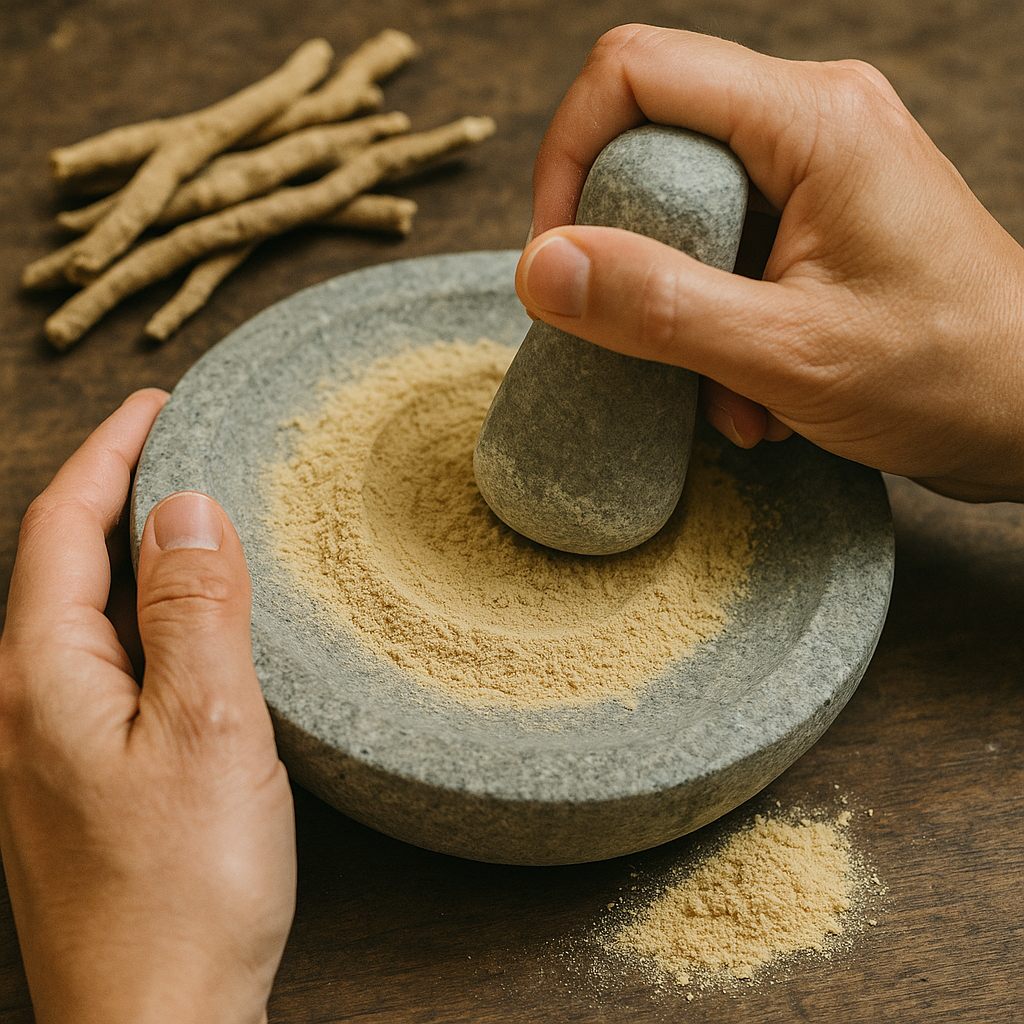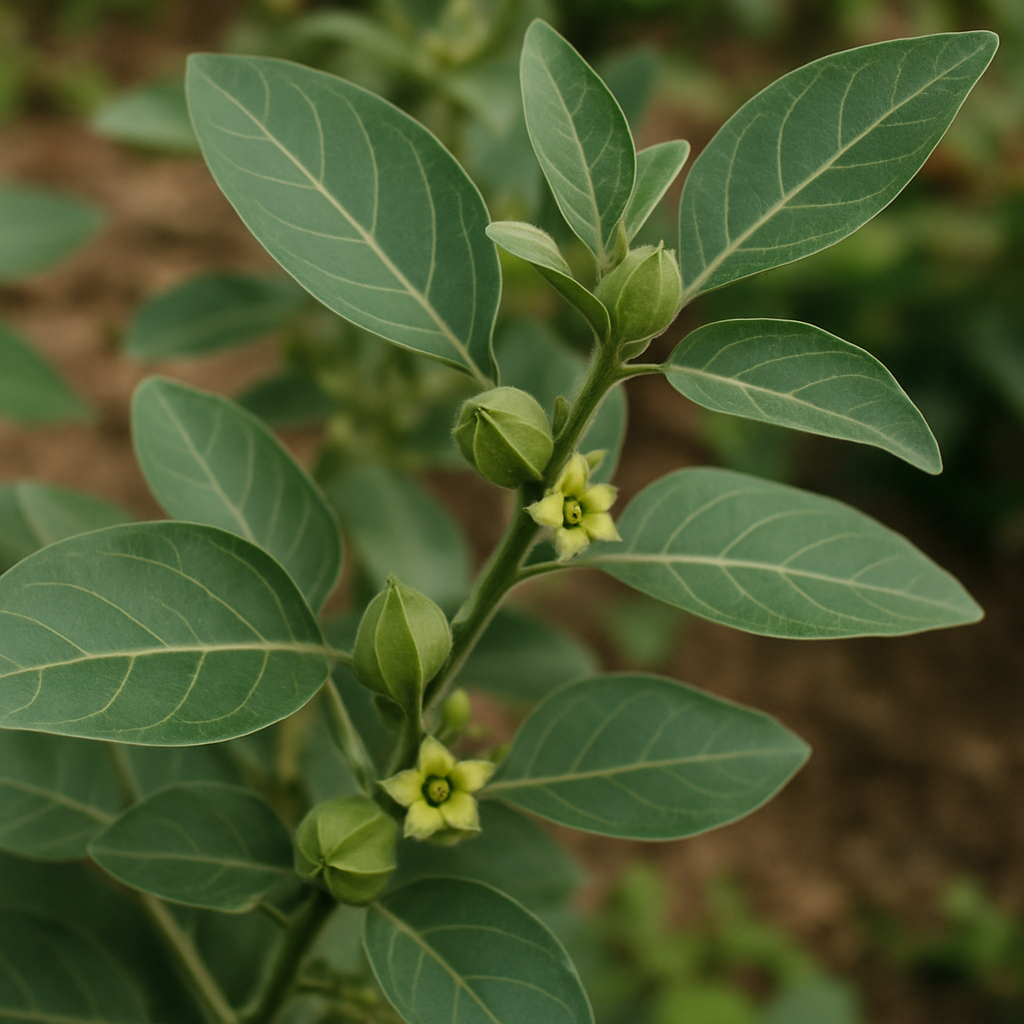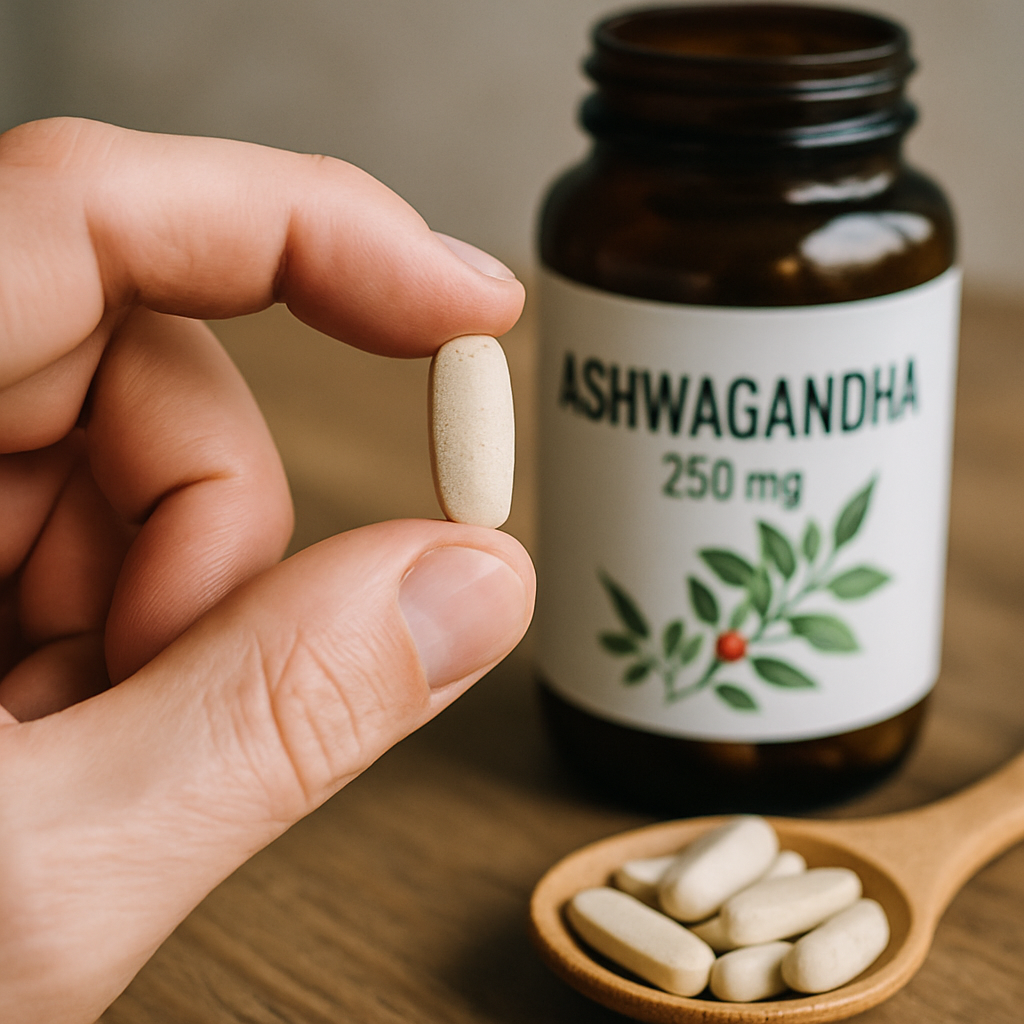What Is Ashwagandha: Ayurvedic Uses, Benefits, and Precautions

Ashwagandha — you’ve probably seen the name floating around in health circles or on supplement bottles at your local wellness store. But what is ashwagandha, really? Is it just another trendy herb, or is there something deeper to it?
Known for centuries in Ayurveda, the traditional Indian system of medicine, ashwagandha is often praised as a natural stress-buster and energy booster. It’s gained global attention lately, especially as people seek more holistic ways to improve mental clarity, energy levels, and immune support. But with its growing popularity also come questions: What are the ashwagandha benefits? What are the best ashwagandha uses, and are there any side effects of ashwagandha that you should be aware of?
This article dives deep into the origins, benefits, common forms, and risks of ashwagandha — offering a balanced, easy-to-understand guide to this powerful adaptogen. Let's explore what makes it so special.

What Is Ashwagandha and Where It Comes From
Ashwagandha Plant and Botanical Profile
The ashwagandha plant (Withania somnifera) is a small shrub with yellow flowers, native to dry regions of India, the Middle East, and parts of Africa. The name "ashwagandha" is derived from Sanskrit — ashwa meaning "horse" and gandha meaning "smell." It’s said the root smells like a horse and is believed to impart the strength and stamina of one, too.
Botanically speaking, it’s a member of the nightshade family (same as tomatoes and eggplants, weirdly enough), and both the ashwagandha root and leaves have been used for medicinal purposes. However, it's primarily the root that’s used in supplements and teas today.
Traditional Role in Ayurveda
In Ayurveda, ashwagandha is considered a "Rasayana," which loosely translates to a rejuvenator or tonic. It's been traditionally used to support longevity, vitality, and mental peace. You’d find it prescribed for conditions like fatigue, poor memory, sleep disturbances, and low immunity. It’s also thought to balance Vata and Kapha doshas — though if you’re not familiar with doshas, don't worry, it just means it helps ground and energize the body and mind.
Don't wait or self medicate. Start chat with Doctor NOW
Ashwagandha Benefits for Mind and Body
So, why is this root getting so much hype?
One of the most popular ashwagandha benefits is its adaptogenic property — meaning it helps the body cope with stress. Modern research backs this up: studies suggest it can help reduce cortisol levels (that’s your stress hormone), which may improve your mood, sleep, and even energy.
But that’s just the tip of the iceberg.
-
Cognitive support: It may boost memory and focus, especially when taken regularly.
-
Hormonal balance: Some evidence shows it helps regulate thyroid hormones and reproductive health — making ashwagandha for women and ashwagandha for men equally important.
-
Muscle and strength: Yup, some gym-goers swear by it for muscle gain and faster recovery.
-
Immunity and anti-inflammation: Thanks to its antioxidant properties, it could help fight off illness and inflammation.
There’s growing buzz around ashwagandha uses in supporting mental health too — think anxiety, depression, and general brain fog. While it's not a cure-all (and shouldn't replace professional treatment), many find it helpful as part of their wellness routine.
(Oh — and one guy on Reddit said it helped him stop biting his nails. Go figure.)

Popular Forms of Ashwagandha and How to Use Them
Ashwagandha Powder, Tablets, and Tea
Ashwagandha doesn’t just come in one form — and that’s honestly part of what makes it so versatile (and, ok, a little confusing). You’ll find it as a powder, in ashwagandha tablets, and even steeped in ashwagandha tea. So which one is “best”? Well, it depends on your goals and lifestyle.
Ashwagandha powder is perhaps the most traditional form. It’s typically made by drying and grinding the root into a fine dust. In Ayurveda, the powder is often mixed into warm milk or honey and taken before bed to help with sleep and stress. The taste is... earthy. Like, really earthy. Some people love it. Others? Not so much. But it's super potent and considered to have a strong effect when taken regularly.
Ashwagandha tablets and capsules are more modern, convenient, and frankly easier to stomach. They’re pre-measured, usually standardized for withanolide content (the active compounds), and perfect for busy folks. Great for travel or for people who can’t deal with the taste of the powder. Which, again — not judging.
Ashwagandha tea is another option, though it’s a bit milder in effect. Made by steeping the root or sometimes the leaves, it's soothing and calming. Great as a night-time ritual, though not as concentrated as other forms.
There’s no right answer here — if you’re consistent and take the right dosage, any of these can be effective.
Ashwagandha Root Extract vs Whole Root
Now, this is where things can get a tad tricky. You’ll often see products labeled with either ashwagandha root extract or whole root. So what’s the difference?
-
Whole root means you're getting the dried root, either powdered or chopped, without much processing.
-
Ashwagandha root extract is a more concentrated version where the beneficial compounds (like withanolides) are extracted and often standardized for strength.
Extracts are generally stronger and better for people who need specific outcomes like stress relief, while whole root might be preferred by purists who want the traditional experience.
Whichever you choose, look for reputable brands. Some cheap ones cut corners — either using leaves instead of root or failing to test for purity. That’s not just shady... it's potentially unsafe.

How to Take Ashwagandha: Dosage and Timing
So how much should you actually take?
It’s a common question, and there’s no one-size-fits-all answer. Most studies show that daily doses of 250–600 mg of ashwagandha extract can be effective for stress, energy, or cognitive support. If you're taking ashwagandha powder, doses are typically higher — anywhere from 1 to 2 teaspoons daily, which can be around 3–5 grams.
For ashwagandha tablets, just follow the label — most reputable supplements are already dosed properly.
Timing-wise, it depends on your goal:
-
Take it at night if your goal is better sleep or reduced anxiety.
-
Take it in the morning for energy, focus, or workout performance.
-
Some people split it — half in the AM, half before bed.
And remember, consistency is key. Ashwagandha isn't like a cup of coffee where you feel the hit immediately. It works gradually, and most benefits become noticeable after 2–4 weeks.
Also — if you’re pregnant, breastfeeding, or on medications, you really should check with your doc first. Just playing it safe, ya know?
Side Effects of Ashwagandha and Who Should Avoid It
Now, for all its benefits, ashwagandha isn't totally side-effect-free. Like any supplement or herb, it can interact differently depending on the individual — and yeah, sometimes in not-so-great ways.
Some common ashwagandha side effects include:
-
Upset stomach
-
Diarrhea
-
Drowsiness or grogginess (especially if taken in large doses)
-
Headaches
-
Irritability (though ironically, that’s what many people take it to fix)
It’s usually well tolerated, but if you’re taking more than recommended, or mixing it with certain medications, problems can pop up.
Here’s a quick rundown of who should avoid ashwagandha:
-
Pregnant women: There’s some concern that ashwagandha might cause uterine contractions. Better to avoid it just to be safe.
-
People with thyroid issues: It can stimulate thyroid hormones, which is great for some — but could cause trouble for others. So if you’re on thyroid meds, double-check with your doctor.
-
Those on sedatives or antidepressants: Ashwagandha can amplify the effects, which might not be what you want.
-
Autoimmune conditions: Ashwagandha stimulates the immune system, which could make autoimmune symptoms worse in some folks.
That said, for most healthy adults, moderate use of ashwagandha is considered safe. But as always, start low and go slow.
Conclusion
So, what is ashwagandha, really? It’s more than just another wellness fad — it’s a deeply rooted herbal remedy with thousands of years of use behind it. From reducing stress and improving focus to supporting strength and hormonal balance, ashwagandha benefits are legit and backed by growing scientific interest.
With so many ashwagandha uses, it's no wonder it's gaining popularity across the globe. Whether you prefer ashwagandha powder stirred into warm milk, ashwagandha tea before bed, or the convenience of a daily ashwagandha tablet, there’s a format that can work for just about anyone.
But like anything, it’s not magic. Consistency, quality sourcing, and proper dosage matter. And hey — listen to your body. Not everything natural is automatically good for everyone.
In the end, whether you're trying to beat burnout, sleep better, or just feel a little more like yourself, ashwagandha might just be worth a spot on your shelf.
FAQs
Is ashwagandha ok to take daily?
Yes, in most cases. Studies show that daily use — particularly in standardized extract form — can be safe and effective. Just stick to the recommended dosage and monitor how you feel. Some people cycle it (e.g., 5 days on, 2 days off), while others take it continuously for months.
Is ashwagandha safe for the kidneys?
For healthy individuals, ashwagandha hasn’t been shown to harm the kidneys. However, people with existing kidney conditions should use caution and consult a healthcare provider before adding it to their routine. Always smart to play it safe.
What is the age limit for ashwagandha?
There’s no strict age limit, but it’s generally recommended for adults 18 and up. Some formulations may be used in older teens under professional guidance. Elderly individuals can benefit too — especially for cognitive and energy support — but dosage might need adjusting.
Got any more questions?
Ask Ayurvedic doctor a question and get a consultation online on the problem of your concern in a free or paid mode.
More than 2,000 experienced doctors work and wait for your questions on our site and help users to solve their health problems every day.

